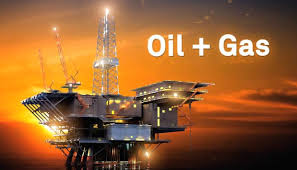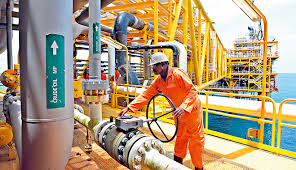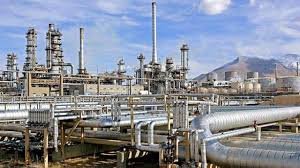![]()
If you’ve landed on this article page, you’re probably searching for a
good business idea—an idea that’s light on the pocket but heavy on
returns, promising both a fulfilling journey and potential profit.
|
How To Start A Lucrative Oil and Gas Exploration Company in
Nigeria
Oil and Gas Exploration Company in Nigeria and Africa plays a
significant role in the economy of the continent. The discovery
of crude oil in Nigeria in 1956 led to the growth of the
country’s economy, and since then, Nigeria has become the
largest producer of crude oil in Africa. Nigeria is also among
the top oil-producing countries in the world, with a daily
production capacity of over 2 million barrels of crude oil. The
oil and gas sector contributes about 90% of the country’s
foreign exchange earnings and 70% of government revenue. In
Africa, Nigeria is the largest oil producer, followed by Angola,
Algeria, Egypt, and Libya.
Furthermore, Nigeria has several untapped oil and gas reserves
that provide opportunities for exploration companies to invest
in the country’s exploration activities. The Nigerian government
has launched several initiatives to encourage investments in the
oil and gas sector, including the Nigerian Content Development
and Monitoring Board (NCDMB), which aims to promote local
participation in the sector.
Exploration activities involve locating oil and gas reserves
through seismic surveys, drilling exploratory wells, and
conducting feasibility studies. The success of exploration
activities determines the potential for production and export of
crude oil and natural gas. In recent years, there has been a
shift towards offshore exploration, as onshore reserves are
becoming depleted. The offshore exploration is focused on
deepwater exploration, which has led to the discovery of
significant reserves, such as the Egina oilfield located in
Nigerian waters.
The export opportunity for oil and gas exploration companies in
Nigeria and Africa is vast, with crude oil and natural gas being
the primary export commodities. The export of crude oil and
natural gas accounts for a significant portion of Nigeria’s
export earnings. In 2023, Nigeria exported 720.4 million barrels
of crude oil and condensates worth $42.4 billion.
Methods Of Oil and Gas Exploration In Nigeria and Africa
Oil and gas exploration companies in Nigeria and Africa use
various methods to locate and extract oil and gas reserves. Some
of the most common methods used include:
Well logging: This technique involves analyzing the physical
properties of rocks and fluids encountered during drilling to
determine the presence and characteristics of oil and gas
deposits.
Horizontal drilling: This method involves drilling a well at an
angle, which allows access to a larger area of the reservoir,
increasing the production rate.
Hydraulic fracturing: This technique involves injecting a
mixture of water, sand, and chemicals into a wellbore to create
fractures in the rock, allowing oil and gas to flow more freely.
Seismic Reflection: This method involves the use of sound waves
to map and locate potential oil and gas reserves. It involves
sending sound waves deep into the earth and analyzing the echoes
that come back.
Seismic Refraction: This method is similar to seismic
reflection, but it involves sending sound waves at an angle to
the earth’s surface to determine the depth and structure of
potential oil and gas reservoirs.
Gravity Survey: This method involves measuring the gravitational
pull of the earth in a particular area to identify potential oil
and gas reservoirs.
Magnetic Survey: This method involves measuring the magnetic
fields of the earth in a particular area to identify potential
oil and gas reservoirs.
Electromagnetic Survey: This method involves measuring the
electromagnetic fields of the earth in a particular area to
identify potential oil and gas reservoirs.
Geochemical Survey: This method involves analyzing the chemical
composition of rocks and soils in a particular area to identify
potential oil and gas reservoirs.
Remote Sensing: This method involves the use of satellite
imagery to identify potential oil and gas reserves.
Oil and gas exploration methods continue to evolve with the
advancement of technology, and new techniques are constantly
being developed to improve the accuracy and efficiency of oil
and gas exploration.
Types Of Equipment & Tools Used In The Oil and Gas Exploration
Company Business In Nigeria or Africa
Seismic Equipment: Seismic equipment is used to create a
detailed image of the subsurface geology using reflected sound
waves. This equipment includes air guns, streamers, and a range
of sensors.
Drilling Rig: A drilling rig is used to drill through rock
formations and extract crude oil or natural gas. There are
several types of drilling rigs including rotary drilling rigs,
top drive drilling rigs, and drilling rigs that can be mounted
on trucks.
Mud Pumps: Mud pumps are used to circulate drilling mud through
the drill pipe and help keep the drill bit cool while drilling.
Blowout Preventers (BOPs): BOPs are safety devices that prevent
the uncontrolled release of oil and gas during drilling.
Casing and Tubing: Casing and tubing are used to protect the
wellbore and provide a conduit for oil and gas to flow to the
surface.
Wellhead Equipment: Wellhead equipment includes valves, chokes,
and other components that control the flow of oil and gas from
the wellbore.
Logging Tools: Logging tools are used to measure the properties
of the subsurface formations and determine the potential for oil
and gas production.
Compressors: Compressors are used to increase the pressure of
the produced gas and transport it through pipelines to
processing facilities.
Separator: A separator is used to separate oil, gas, and water
from the produced fluids.
Storage Tanks: Storage tanks are used to store the crude oil or
natural gas until it can be transported to a refinery or
processing facility.
Pipeline: A pipeline is used to transport the produced oil and
gas over long distances to processing facilities or markets.
Artificial Lift Systems: Artificial lift systems are used to
increase the production rate of oil and gas wells. These include
rod pumps, electric submersible pumps, and gas lift systems.
Flow Meters: Flow meters are used to measure the flow rate of
oil and gas from the wellbore.
Gas Dehydration Equipment: Gas dehydration equipment is used to
remove water vapor from natural gas to prevent corrosion in
pipelines and processing equipment.
These are the equipment used in Oil and Gas Exploration Company
in Nigeria and Africa to ensure effective exploration,
production and transportation of oil and gas resources.
Decide on an exploration site. Obtain the necessary drilling and
land use permits from county and/or state governments. Permits
will contain local requirements for environmental impact
studies. After determining legal ownership of the property and
the absence of prior claims that might interfere with your
exploration, execute a lease with the property owner and/or the
owner of mineral rights. Your attorney, who should have
experience in oil exploration, will prepare the proper lease
documents. Subcontract with technical operators as needed. For
example, a geophysical firm can obtain seismic measurements to
estimate the properties of the subsurface at the site. Modern 3D
seismic technology greatly eases the interpretation of data.
The oil and gas exploration industry in Nigeria and Africa has
proven to be a vital contributor to the economic growth and
development of the region. It is a highly lucrative business
that presents various opportunities for investors and
entrepreneurs, ranging from upstream exploration and production
to downstream marketing and distribution. With a vast array of
natural resources, favorable government policies, and an
ever-growing demand for energy, the industry is poised for
sustained growth and expansion. However, challenges such as
insecurity, regulatory hurdles, and environmental concerns must
be addressed for the sector to reach its full potential.
Get our Practical Training guide on How To Start A Lucrative Oil and Gas Exploration Company in Nigeria. The Oil and Gas Business plan provides a detailed roadmap for entrepreneurs seeking to dive into the Oil and Gas industry in Nigeria. The plan offers an in-depth analysis of essential commercial elements, equipping you with actionable insights to build a robust foundation for your venture. It meticulously explores the nuances of your business idea and considers the local market dynamics, competitive landscape, and the driving forces behind market growth.
|







